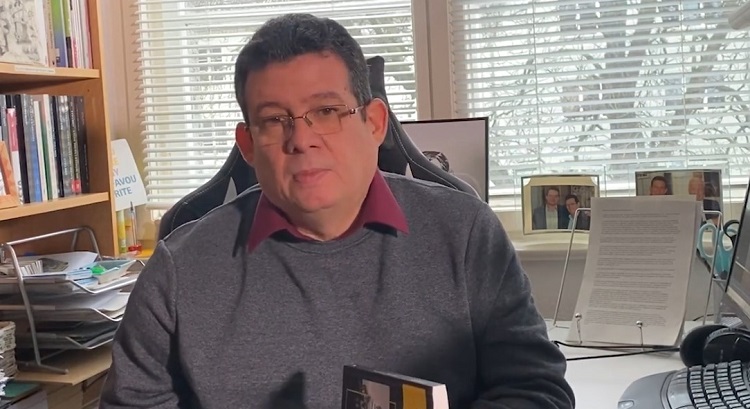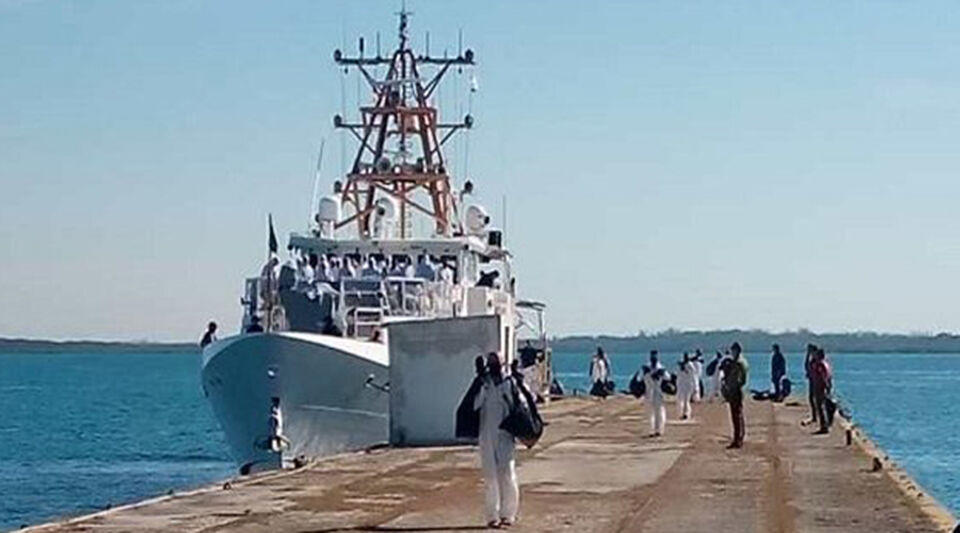MADRID, Spain.- The Cuban writer Amir Valle, prohibited from returning to Cuba since 2005, feels fulfilled in Berlin, Germany, where he lives and has managed to found the publishing house Ilíada Ediciones, and have his own literary magazine, Another Monday – Hispano-American Magazine of Culture; in addition to continuing his extensive literary production, recognized worldwide.
However, the forced exile, and everything that entails, such as the separation from his family, was “particularly hard”, as he explained in a recent interview with DNA America.
At the time the Cuban government prohibited him from returning to the island, he was on a business trip to Europe with his wife, but his children, ages 4 and 16, were in Cuba.
“The first impact of exile is emotional: you feel that a space that you thought was yours has been taken from you. (…) In that space ripped off by the roots, the material (your house, your neighborhood, the places where you were trained, etc.), the spiritual (the experiences, the memories, the marks that your passage through life leaves in your spirit) converge. in those places) and the sentimental (your family, your friends, the human and cultural environment)”, comments the Guantanamo journalist and critic.
When the regime prevented his return, he had to stay in Spain for three months. “I was a well-known figure in the world of European culture; and as soon as my irregular situation became known, a group of Spanish, German and international institutions colluded to guarantee my legality in Europe while the claim process to return to Cuba lasted, which lasted almost two years, without answers,” he explains.
At the end of his legal stay in that country, the Heinrich Böll Foundation, a German organization for foreign writers with political difficulties in their countries of origin, awarded him a scholarship. Then the German chapter of the International PEN Club offered him a three-year literary scholarship.
According to his account, thanks to the personal intervention of Gabriel García Márquez, in 2006 his youngest son was authorized to leave Cuba. The eldest left a year later due to “other intellectual adventures.”
The writer told DNA America that he feels privileged by the conditions in which he was exiled, since he was never helpless; but that is not the case for many others exiled by the regime.
On the modus operandi of the Government of the Island of prohibit return Of those who are “uncomfortable”, Amir Valle pointed out: “Exiling is part of the very nature of that dictatorship, which takes refuge from international criticism by saying that ꞌCuba has another concept of those rightsꞌ and attributes its decision to the need to combat a supposed universal conspiracy to destroy ‘the Revolution’”.
Regarding the officials of Cuban cultural institutions who have been accomplices of the regime to apply forced exiles as a strategy to control intellectuals and dissidents, Amir Valle opined: “The saddest thing is that the abnormal circumstances of Cuban culture force you to accept that your colleagues, your generation mates, and even your friends become your executioners at some point. Something must be said loud and clear: in Cuba, in almost all fields and specifically in journalism and culture, which are the areas I know, the repressor is always someone whom you have considered one of your own, whom you have even respected for his artistic contribution, and almost always someone with whom you have shared complicities and challenges for a good part of your career”.
Amir Valle, who recently saw another German reissue of his crime novel series published The descent to hellis one of the most prolific Cuban writers of the crime genre of his generation.
Among others, he received the international novel awards “Mario Vargas Llosa” (2006) and “Rodolfo Walsh” (2007).
Receive information from CubaNet on your cell phone through WhatsApp. Send us a message with the word “CUBA” on the phone +525545038831, You can also subscribe to our electronic newsletter by giving click here.














